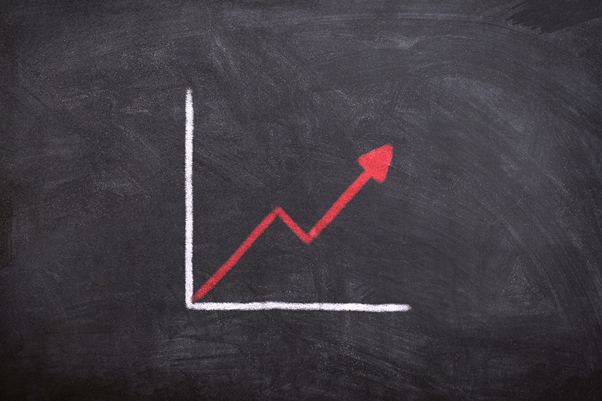The Australian Energy Regulator announced late last month that power bill hikes would begin on July 1. This is actually a cap on how much retailers can charge customers, which is called the default market offer. By limiting the amount, customers will pay while allowing retailers to profit, the plan compensates for the steep rise in wholesale power prices.
Rise in prices nationally
Despite its name, the Australian Energy Regulator (AER) isn’t a national body. Rather, it covers only NSW, South Australia, and the Southeast Queensland region. As each state and territory run its own affairs, tthere is no one answer that applies to all of Australia.
Is my state’s power bill going up?
Again, this isn’t a precise answer since these are just the caps that state and territorial regulators had set. This might vary by supplier. Nevertheless, here is what state and territorial regulators are saying:
According to the Independent Competition and Regulatory Commission, tariffs are scheduled to decrease by an average of 1.25 per cent from July 1. Approximately $23 is lost annually for the average household.
According to distribution zones, the default market offer may rise by a maximum of 9.6 per cent, 11.5%, or 18.3% in New South Wales. In other words, there will be a maximum annual increase of $210 to $369.
The Northern Territory’s electricity prices are determined by the Electricity Pricing Order. A similar document was signed last June, but the order that takes effect on July 1 has yet to be made public. It should happen within the next few days.
Across south-east Queensland, power bills are forecast to rise by up to $220 annually or 12.6%. According to the Queensland Competition Authority, power bills will rise by 9.2 per cent, or around $119 every year, in regional Queensland.
A rise of $198 per year or 9.5 per cent, is expected to occur in the South Australian default market offer. The Tasmanian Economic Regulator has not yet released its 2022-23 financial year determination. It is scheduled to do later in March. At the same time, Victorian Default Offer customers will see their annual bill increase by about 5 per cent starting from July. This represents a $61 increase in the annual bill.
Each year, when delivering the state budget to the people of Western Australia, the government sets household prices. State officials announced in May that prices would rise by 2.5 per cent.
So, why are prices increasing?
Russia is a major player in oil and gas in the world, but its imports of oil and gas have been blocked by sanctions in the US, the EU, and even here in Australia. Globally, the price of gas, coal, and oil is increasing due to a smaller supply pool, which is the result of increased demand. Australia is reliant on coal for about two-thirds of its electricity supply, so fuel price hikes have a big impact on us.
Coal-fired and gas plants have been experiencing unplanned outages for a variety of reasons, but some can be attributed to maintenance on old plants.
Furthermore, interruptions in coal deliveries in Queensland and New South Wales are a result of extreme weather conditions.
The cost of network service has pushed up retail prices for Essential Energy and Endeavour Energy in New South Wales, but only in certain areas.
What is the government’s take on the hike?
Ministers from Australia’s energy sector met for the first time on Wednesday and devised a comprehensive 11-point plan.
The second point was to fast-track what’s called a capacity mechanism. An energy consumer pays the provider to keep excess energy capacity for emergencies.
Originally slated for 2025, it may now move forward, but there may be obstacles to overcome. Energy Minister Chris Bowen suggested that AER could purchase gas and store it in case of a crisis. As far as Mr Bowen is concerned, there is no “silver bullet” to resolve the current crisis.
There is a possibility that the federal government will pull the gas trigger, which would force gas exporters to reserve a portion of their supply for use in Australia. Yet, even if the trigger were pulled today, the new law would not take effect until January.
How can I lower my power bills?
Now is the time for an energy plan comparison. Small businesses can save around 29 per cent by switching, and residential customers can save around 24 per cent, says AER chair Clare Savage.
For your convenience, Select and Switch provide customers with a tool for comparing energy plans in the VIC, ACT, NSW, QLD, and SA. If you are able to get a cheaper plan, call your provider and find out whether they will increase their prices before the July 1st deadline.
The next step is to shop around for the best energy plans so you can lock in a fixed-rate plan for 12 months, meaning that your monthly bill won’t increase. With this plan, you’ll be protected from price hikes that might be coming up in the next few months.
Western Australians and customers in parts of the Northern Territory, on the other hand, have fewer options. Depending on where they live, they are supplied by either Synergy or Horizon Power. This means they can compare the providers or choose the best option for them.
With the Select and Switch energy cost calculator tool, you can determine which electricity plans will save you the most money based on energy providers’ comparison.
Choosing a better energy deal for your house or business has never been easier with Select and Switch, one of Australia’s most reputable energy comparison services. Based on price and unbiased findings, it allows you to compare, select, and switch energy providers in less than 5 minutes. Speak to Select & Switch today to determine the ideal energy package for you.









